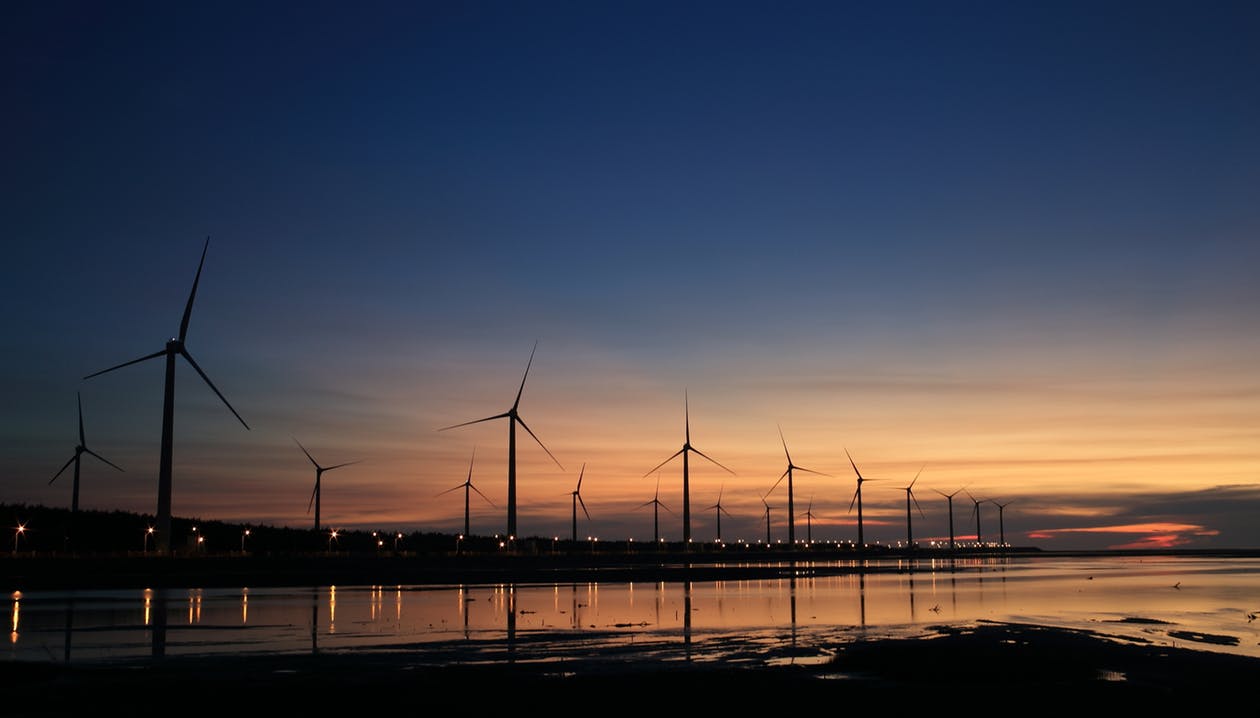How can the objectives of the 10-point plan be achieved? Boris Johnson announces 10-point green plan with 250,000 jobs
Boris Johnson’s £12bn plan for a “green industrial revolution” spans renewable energy, nuclear power and countryside restoration. However, some of the objectives are likely to be difficult to reach, and the plan has been criticised for a lack of ambition in key areas.
Offshore wind
Offshore wind has plunged in price in recent years, spurring an increase in windfarm construction even as government incentives have been slashed. However, the UK’s electricity grid has not kept up with the pace of change, and no commitment to offshore wind can be complete without explaining how the grid will be updated. Green groups are also concerned that a rush to new offshore windfarms will harm marine and coastal habitats, unless there is more coordination in their planning. Industry experts are also worried that the boom in offshore wind will fail to benefit UK companies and will be led by those overseas that import components. While the government claims that jobs will be created here, many of them are likely to be low-value “muck-shifting” construction work rather than in high-value manufacturing, unless there is more support for manufacturers.
The government promises to produce enough offshore wind to power every home, but the electricity needs of the average family are likely to increase markedly as people switch to electric vehicles and heat pumps instead of gas boilers.
Onshore wind is cheaper than offshore wind, but the construction of onshore windfarms in England has all but ground to a halt, owing to planning reforms under David Cameron.
Hydrogen
Hydrogen has been touted as the fuel of the future for two decades, but despite advances in technology, the prospect of a hydrogen fuelled economy is still some way off. The International Energy Agency says investment in the technology now is a good idea, as part of a green recovery, but green groups are concerned that fossil fuel companies may see in hydrogen fuel an excuse to keep exploring for natural gas.
That is because currently the main source of hydrogen is as a byproduct of natural gas extraction. They warn that if hydrogen is to be truly low-carbon, the industry must invest instead in other forms of hydrogen production, such as producing the fuel from water.
Nuclear
Hinkley Point in Somerset is the UK’s only new nuclear power plant currently under construction, and has been plagued by lengthy delays and rising costs. When the plant finally comes on stream, it is likely to be the most expensive source of power in the UK. Plans for a second new reactor in Wales were finally abandoned in September by the Japanese company Hitachi, and proposals for a new plant at Sizewell in Suffolk are under review. If the government wishes to expand nuclear power, it will have to prove that it can be economical.
Tom Burke, chair of the E3G thinktank, said: “The only way to build another big nuclear reactor is if the government puts electricity bills up twice to pay for it – first to buy the concrete and steel to build it and then again to buy its electricity at far higher price than renewable generators will be charging. [And] the main problem with small modular reactors is that no one has one for sale – not even Rolls-Royce. They are actually offering to design one but only if the government will guarantee a £32bn order for 16 and pays half the £400m cost of the design. One word for deciding to go ahead on this basis is ‘brave’, a more appropriate word might be ‘foolhardy’.”
Electric vehicles
The move to bring forward the phase-out of fossil fuel vehicles has been widely trailed, and car manufacturers are now accelerating the shift to electric engines. What is so far missing is a plan for electric vehicle charging infrastructure. Building such infrastructure could generate tens of thousands of “shovel-ready” jobs, but who will pay for it? Cash-strapped local authorities currently shoulder much of the cost for the limited infrastructure available, but it is a patchwork system with widely varying costs for drivers across the country.
There is also no answer yet to the question of how heavy goods vehicles will be shifted away from fossil fuels.
Read more: The Guardian





